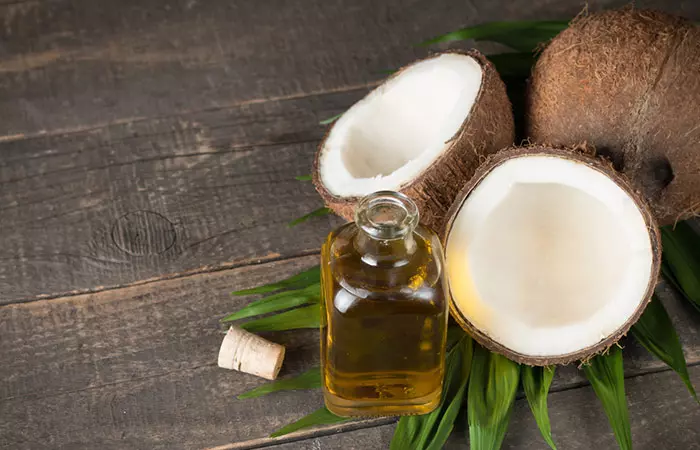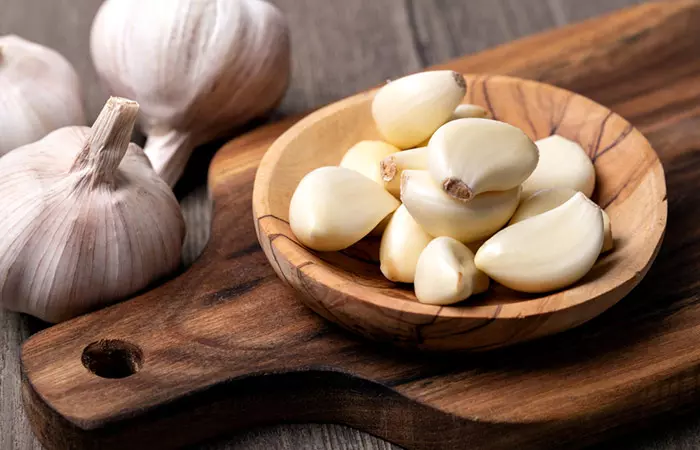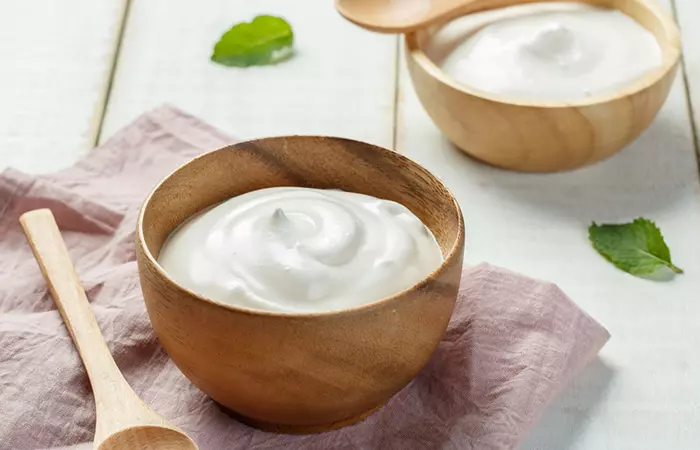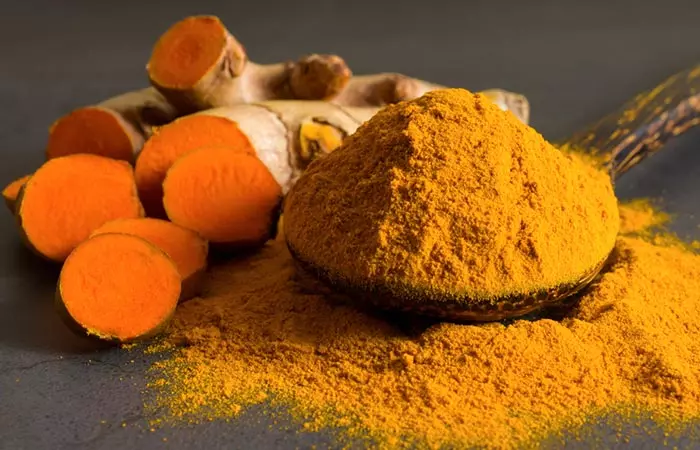(1). This condition occurs as a result of an imbalance between the good and bad bacteria in your vagina. Although sometimes bacterial vaginosis may go away on its own, it is recommended that you seek quick medical intervention to prevent health complications like infertility or miscarriage. In this article, we explore the signs and symptoms of bacterial vaginosis and simple home remedies you can try for some relief.
What Is Bacterial Vaginosis?
Bacterial vaginosis is the vaginal infection caused by the bacteria Gardnerella vaginalis. This infection occurs due to an alteration in vaginal ecology. In this infection, Lactobacillus spp., the predominant organisms of a healthy vagina, are replaced by bad bacteria (2). This causes an imbalance in the vaginal environment. Bacterial vaginosis is a common condition that many women can develop. Fortunately, there are home remedies to treat the condition and prevent it. Let’s take a look at them in the next section. A study estimated that bacterial vaginosis occurs in 5 to 70% of women. In the US, 30% of women between the ages of 14 and 49 are afflicted. It is most prevalent in Africa and least common in Asia and Europe. However, rates vary by ethnic group and are highest among non-white women (51% African Americans, 32% Mexican Americans). Note: While the following home remedies may not be as effective as prescription medications, they do not have side effects and may help restore the healthy lactobacilli composition. Hence, there is no harm in giving them a try.
11 Home Remedies To Treat Bacterial Vaginosis
1. Coconut Oil
Coconut oil has antimicrobial properties (3), (4). These antimicrobial properties may combat the bad bacteria. Coconut oil may also help restore the bacterial balance within your vagina. Virgin coconut oil Do this once a day.
2. Apple Cider Vinegar
Apple cider vinegar possesses antibacterial and antiviral properties (5). These may help fight the bacteria responsible for bacterial vaginosis. The vinegar may also protect you from other microbial infections (6).
Apple cider vinegar Bathwater
Do this once a day for effective results.
3. Hydrogen Peroxide
Hydrogen peroxide is believed to be a natural disinfectant. This can destroy the infection-causing bacteria in vagina (7).
3% hydrogen peroxide Water
Do this once a day for 3 weeks.
4. Garlic
Garlic contains allicin that has a strong odor and possesses antimicrobial properties against multiple strains of bacteria (8). A study found that a garlic tablet could help treat bacterial vaginosis (9). A garlic clove Ingest a clove of garlic with your food. Do this multiple times a day.
5. Tea Tree Oil
Tea tree oil exhibits antiseptic and antimicrobial properties (10). A small study showed that tea tree oil was effective in treating bacterial vaginosis (11).
5-10 drops of tea tree oil 1 ounce of coconut oil Warm water Tampons
Do this once a day for at least a week.
6. Yogurt
Yogurt is a natural source of probiotics. Probiotics may help restore the good bacteria in the vagina. The live bacterial cultures present in yogurt may help in the treatment as well as prevention of bacterial vaginosis (12). Plain yogurt Consume a bowl of plain yogurt. Do this once a day.
7. Fenugreek
Fenugreek seeds exhibit strong antibacterial activity (13). This may help kill the bad bacteria causing bacterial vaginosis.
Fenugreek seeds Water
Do this once a day until you notice any visible changes.
8. Turmeric
Turmeric contains curcumin that possesses antimicrobial activity and blocks bacterial growth (14). Hence, turmeric may be an excellent option for treating bacterial vaginosis.
1 teaspoon of turmeric powder 1 cup of hot milk
Consume this mixture once a day.
9. Cold Compress
Ice packs can help reduce inflammation, pain, itchiness, and other related symptoms (15). Hence, using an ice pack may provide immediate relief from the irritating symptoms of bacterial vaginosis.
Ice cubes A clean washcloth A plastic cover
Do this 2-3 times a day.
10. Vitamin C
According to a study, vitamin C vaginal tablets are effective in treating bacterial vaginosis (16). They successfully treated 86% of women who participated in the study. Vitamin C tablets Take one tablet after consulting your doctor. Do this once a day.
11. Cranberry Juice
Cranberry juice is used in the treatment of urinary tract infections due to its antibacterial properties (17). The antibacterial properties of cranberries may help combat bacterial vaginosis naturally. Unsweetened cranberry juice Consume a cup of unsweetened cranberry juice. Do this once a day. These remedies can help treat bacterial vaginosis. Though you cannot always prevent this infection, you can take the following precautions to steer clear of it.
Prevention Tips
Avoid multiple sex partners. Use a condom during sex. Avoid douching. (Over irrigation can lead to pH imbalance in the vagina). Consume foods containing healthy bacteria called Lactobacillus acidophilus (like kefir and yogurt). This may help balance the vaginal ecosystem. Avoid sugary, processed, and fermented foods.
Vaginal pH is a key indicator of the vaginal health. Since bacterial vaginosis may lead to pH imbalance, trying to restore vaginal pH balance naturally may help manage the condition and maintain vaginal health to a certain extent.
What Causes Bacterial Vaginosis?
There are no established causes of bacterial vaginosis. Some factors that can increase the risk of contracting bacterial vaginosis are:
Having more than one (or a new) sex partner Douching Smoking
Although bacterial vaginosis is more common in women who are sexually active, it can occur in other women as well.
Signs And Symptoms Of Bacterial Vaginosis
Many women do not exhibit the symptoms of bacterial vaginosis. However, some symptoms of BV may include:
A thin white or gray vaginal discharge Pain, itching, or burning in the vagina A strong fish-like odor, especially after sex Burning when urinating Itching around the outside of the vagina
Vaginal odor, accompanied by yellowish discharge, is one of the most common indicators of bacterial vaginosis. Learning how to get rid of vaginal odor and keeping it clean may help you manage the odor. However, always consult a doctor before trying any remedies. If you believe you have developed bacterial vaginosis, consult your gynecologist. This is especially important if you have another health issue as it may cause issues. A blogger shared her health journey dealing with PCOS, ulcerative colitis, and subsequent fertility issues. She also discussed how a treatment used to treat recurring bacterial vaginosis (BV) caused more complications for her. She writes, “I also had something wrong “down there”…bacterial vaginosis (BV)? yeast? It was slimy, smelly, and itchy. I was treated for both, and the flagyl they gave me for the BV apparently made my colitis “flare” (bleeding from the colon) (i).” Flagyl is an antibiotic medication prescribed to treat bacterial infections.
Possible Complications Of Bacterial Vaginosis
Bacterial vaginosis may prove to be quite dangerous in the following situations:
Bacterial vaginosis may increase the chances of miscarriage among pregnant women (18). Development of bacterial vaginosis during pelvic procedures (Cesarean section or abortion) may increase the risk of contracting a pelvic infection (19). Bacterial vaginosis may increase the chances of contracting sexually transmitted diseases like HIV (20).
Along with home remedies, it is recommended to seek medical treatment. Let’s see what that looks like in the next section.
Medical Treatment For Bacterial Vaginosis
Here are some medicines doctors are likely to prescribe to treat this condition:
Metronidazole
Usually the first-line treatment for bacterial vaginosis (21). In the gel form, it may be inserted into the vagina.
Clindamycin
To be applied inside the vagina in cream form or taken as a pill. Even though it is effective, it may lead to irritation, itching, and a burning sensation (22).
Tinidazole
Administered orally, it has shown significant improvement in this condition (23). It is also a highly effective alternative to other medicines.
Secnidazole
An effective oral antibiotic against various parasitic and bacterial infections (24). It may also lead to side effects such as nausea, diarrhea, and headache. Can bacterial vaginosis cause infertility? If left untreated, bacterial vaginosis can spread to the uterus and fallopian tubes and cause pelvic inflammatory diseases. This can damage the fallopian tubes and cause infertility (25). Why does my vagina smell like fish? If your vagina smells like fish, it means that you have contracted bacterial vaginosis, and thus, you must avail treatment immediately. What is the difference between bacterial vaginosis and a yeast infection? If you notice a white vaginal discharge that looks like clumpy cottage cheese and is odorless or smells of yeast, it means you have developed a yeast infection. But if you notice a yellowish or grayish vaginal discharge that smells like fish, it usually indicates that you have got bacterial vaginosis. Different pathogens may trigger different symptoms and some overlap in treatment. However, each pathogen must be addressed uniquely. Specific home remedies for yeast infection or bacterial infection can help and be greatly effective. How long does bacterial vaginosis last? Most often, bacterial vaginosis is a minor issue that resolves by itself in a few days. However, it may cause complications in certain cases and the symptoms may last for weeks. Visit a doctor if you feel the condition is aggravating. Does stress cause BV? Yes. Increased psychological stress is often linked to a higher prevalence and incidence of bacterial vaginosis. However, more studies are warranted to understand how stress makes people more vulnerable to BV (26). Is BV contagious in males? No, men cannot get bacterial vaginosis. However, they may spread the infection. Can BV turn into chlamydia? Yes. If left untreated, BV might increase your chances of contracting chlamydia (27). What is the best medication for BV? Antibiotics like metronidazole and clindamycin can effectively treat bacterial vaginosis (28). Can probiotics cure BV? Oral or vaginal probiotics seem to successfully treat and reduce recurrent bacterial vaginosis. However, the dose, method, and treatment procedures vary widely between trials, though participants from many studies have indicated a significant decrease in bacterial vaginosis recurrence (29).
Illustration: Best Home Remedies To Get Rid Of Bacterial Vaginosis












